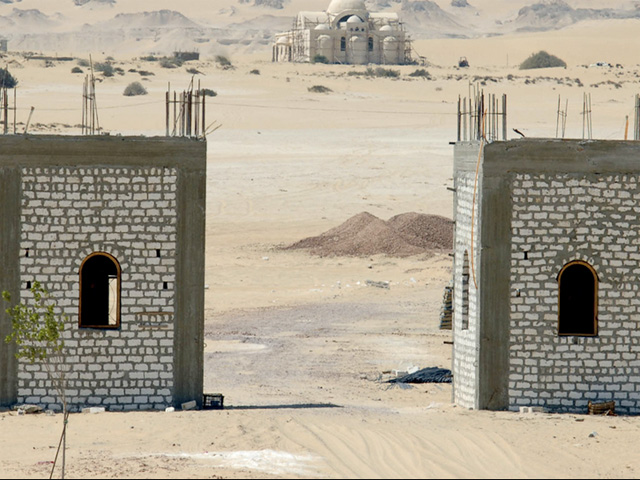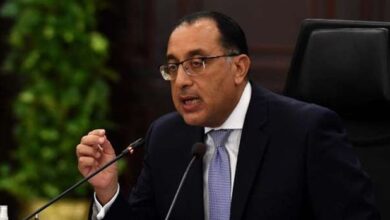
Environment Minister Mostafa Hussein Kamel vowed the government would remove a monastery encroachment on the Wadi al-Rayan reserve Tuesday, angering monks, who say they will defend their land with their lives.
The monks constructed a wall without authorization around the monastery in 2011 amid security concerns. Environmentalists believe it is a threat to the flora and fauna of the Fayoum reserve and have lobbied to have it removed.
Tension escalated Tuesday when Kamel visited the area, the first official reaction on the ground. After surveying the site with Fayoum Governor Ahmed Ali, Kamel said monks have extended the wall surrounding the monastery and seized an estimated 110 square kilometers of Wadi al-Rayan land. The monastery grounds also house a bakery, living quarters, churches and crop fields backed by advanced irrigation networks, in addition to workshops for cars and heavy equipment used in drilling.
Kamel estimated the concrete wall is 15 km long. The minister told Al-Masry Al-Youm he would apply the law and hold violators accountable for the "flagrant" encroachments.
Father Mina, one of the monks residing in Wadi al-Rayan monastery, challenged Kamel's statement, saying no one can remove the monastery property.
Residents in the surrounding area have accused officials of being in league with the monks.
Resident Mefreh Aboud submitted a complaint to the Environment Ministry saying that the monks took advantage of lax security enforcement after the revolution to extend the walls of the monastery. Aboud alleged the monks had seized a water tank built by residents and prevented them from using it.
Kamel has requested a report of the encroachments be submitted to the president, according to one of the presidential advisers.
Deputy head of nature reserves at the ministry, Ayman al-Wahy, accused the monks of wiping out some species in the reserve. Wahy said that animals such as the red fox, the sand fox, deer, hares and other animals, in addition to rare plants, on which those animals depended for food, have disappeared since the construction of the wall.
Director of the same ministry department, Mohamed Talaat, claimed the monks prevented tourists from visiting the reserve, and that complaints were filed against them for assaulting Environment Ministry workers. He added that committees previously assigned to remove encroachments failed to do their work.
A unique protected area in Fayoum Governorate, Wadi al-Rayan attracts nearly 190,000 tourists each year. Because of its biological, geological and cultural resources, the government designated it a protected area in 1989. UNESCO declared it a World Heritage site in 2006.
In 1996, three monks traveled to the area’s mountain caves to worship. They reached an agreement with the Wadi al-Rayan administrators to live in some of the caves.
This agreement stipulated that the monks could live in the caves as long as they did not harm the area or build on the land.
One of the monastery's monks recently told Egypt Independent that they work in cooperation with the Environment Ministry to welcome tourists and that the building of the monastery was supervised by the Coptic Orthodox Church.
Edited translation from Al-Masry Al-Youm




